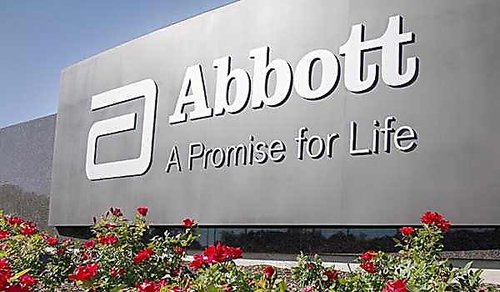| ABBOTT NUTRITION | |
| Leadership | Miles White (CEO); Heather L. Allen (Executive Vice-President, Nutrition) |
| Headquarters | Chicago, Illinois, U.S.A. |
| Year started halal certification | 2003 |
| Revenues | $7 billion from the sale of nutritional products in 2014 |
COMPANY OVERVIEW
Abbott Nutrition is a division of Abbott, the global, broad-based healthcare company. The company built its reputation on nutritional excellence through solid scientific advances and has been responsible for some of the world’s most trusted names in pediatric, adult, and healthy living nutritional product brands.
Abbott first acquired halal certification in 2003 to meet Southeast Asian market demand. The company also wanted to meet criteria for international trade as the Saudi Arabian government required any food and beverage imported to be halal-certified. As a result, in 2009, specific Abbott products, including nutritional ones, became halal-certified and have remained so for almost a decade.
ACHIEVEMENTS
- In 2011, Abbott received the Company of the Year Award from the American halal certifier Islamic Food and Nutrition Council of America (IFANCA).
- In 2014, the company earned $7 billion in revenue, , increasing from $6.5 million in 2012, which represents a 4 percent cumulative annual growth rate (CAGR) that is driven significantly by emerging economies.
OPPORTUNITIES BEING ADDRESSED
Muslims spent an estimated $129 billion on pharmaceutical products, nutritional supplements, and personal care products in 2014 according to the State of the Global Islamic Economy Report 2014/15.
Following on this is an increasing demand for the availability of food and nutritional products to cater to halal lifestyle requirements, particularly in OIC countries.
The presence of pork gelatin and non-halal ingredients has limited sales to Muslims and limited access to Muslim-majority countries. To address this issue and to ensure that its products are widely available, Abbott Nutrition produces halal products for different markets under the supervision of IFANCA or the Islamic Religious Council of Singapore (MUIS) or the Halal Food Council of Europe (HFCE).
KEY ELEMENTS OF ABBOT’S MUSLIM MARKETS STRATEGY
Accessing global Muslim markets
Abbott’s shift toward halal-certified products was undertaken to broaden its market coverage and provide access to Muslim consumers globally. In 2008, Donald Sgontz, Manager of Halal and Kosher Programs at Abbott, told IFANCA that obtaining halal certification for the company not only made good business sense, it was also the right thing to do. Sgontz attributed the decision to social responsibility, saying that Abbott wanted to provide nutritional products to as many people as possible.
Establishing a global halal supply chain and receiving positive publicity in Muslim communities
Abbott began certification in Malaysia, Indonesia, and Singapore in 2003 to learn and implement best practices globally.
Subsequently, Abbott Nutrition produces halal products for different markets under the supervision of IFANCA or MUIS or HFCE.
It was the company’s efforts and rigorous investment and adherence to the halal production process that was recognized by the IFANCA award in 2011. Abbott also received public recognition from several U.S. publications that address the Muslim population, helping boost the company’s credibility with Muslim consumers.
OPPORTUNITIES
Through its continued adherence to halal processes and proactive advertising in Muslim countries, leveraging effective Muslim-focused digital advertising channels such as Muslim Ad Network will help the company increase revenues through selling its products to a high-growth Muslim population.
CHALLENGES
Differences between each of the three certification bodies that Abbott is overseen by make it a challenge to manage multiple certifiers. However, the movement toward accreditation of different certifying bodies and potential harmonization of standards could simplify the production process going forward.
Furthermore, there is always the risk of an adverse reaction from non-Muslim consumers who campaign against halal products. However, given the size of the global Muslim market and the growing demand for halal products, the decision to make products halal by default has proven commercially sound enough to offset these concerns.
|
KEY TAKEAWAYS |
|
Evaluate the size and growth dynamics of the Muslim market; the sheer scale of opportunity could justify incorporating halal practices across your supply chain. |
|
Work together with certifiers to develop best practices and to gain credibility with the end consumer. |
© SalaamGateway.com 2016


DinarStandard